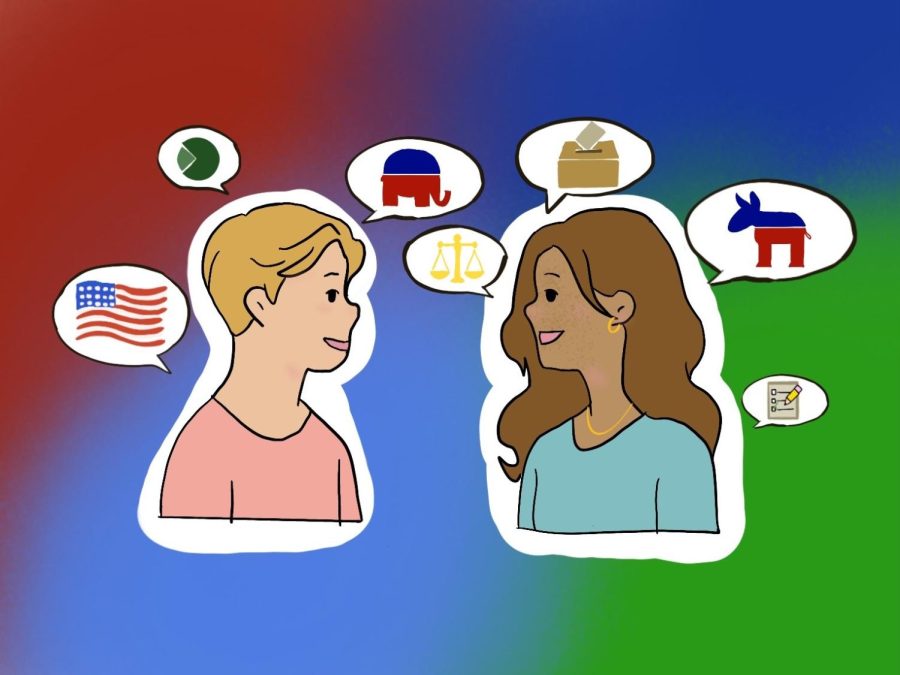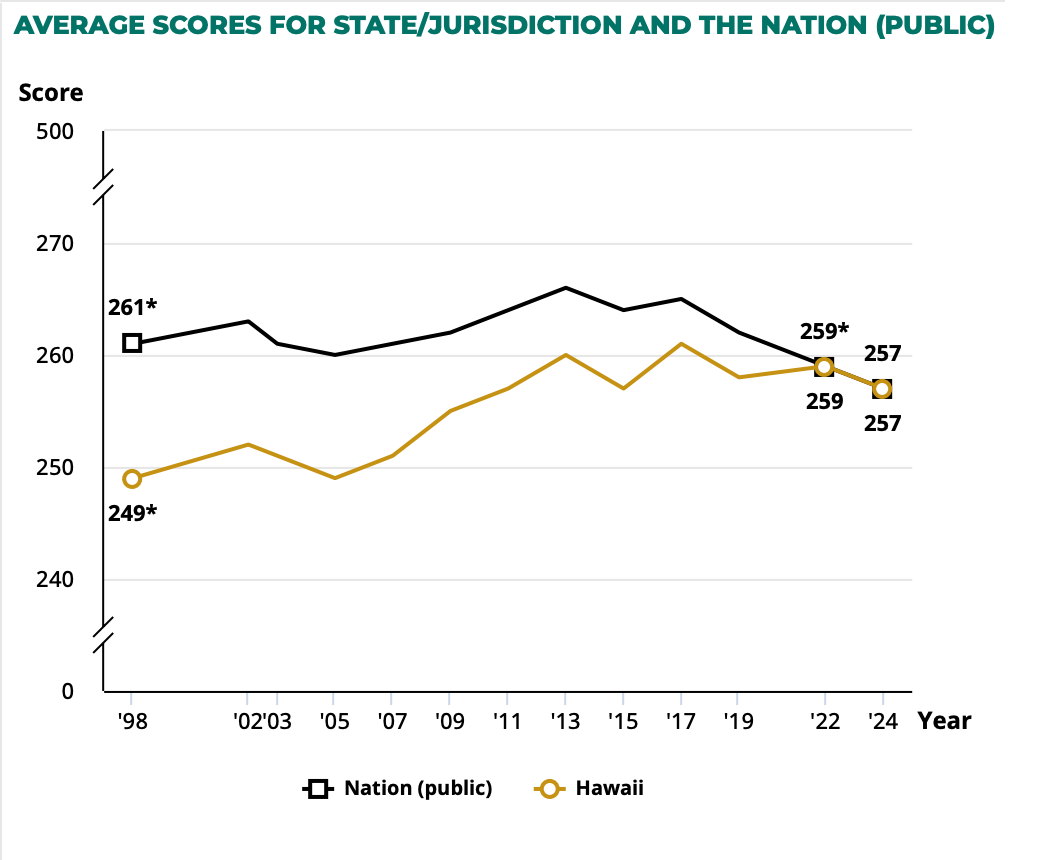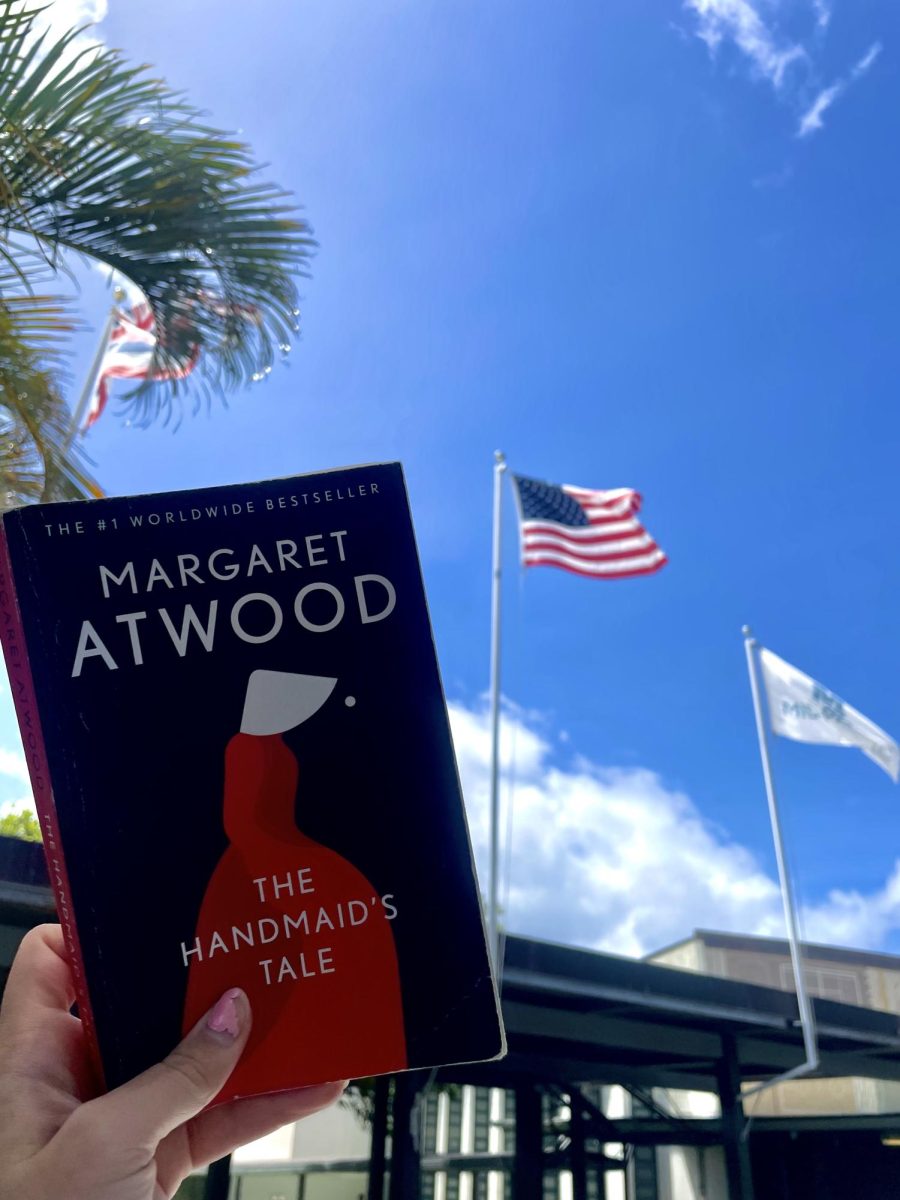Indoctrination, or Just Education?
Two students discuss various political topics on top of a gradient background.
February 14, 2023
The definition of indoctrination is the process of teaching a person or group to accept a set of beliefs uncritically. When a teacher discusses politics in class, is that really indoctrination, or is it just education?
Some feel that when a teacher opts to include their political opinions in a lesson, they are attempting to influence students and crossing a line.
“There’s a basic sense of trust students have for their teachers; that teachers will teach them what is correct. So when teachers express their own political views, it’s sort of indoctrination. Students will feel inclined to believe that very thing, because that’s what they’re being taught by the teacher,” sophomore Joseph Cupo said.
Others believe that as long as an educator does not attempt to influence their students, sharing their own opinions on a political topic can elevate a lesson. Being aware of all the ideologies and opinions in the world from a young age can be key to developing one’s own ideas.
“When students get out in the real world, they’re not going to be living in a bubble where all the people are just like them. Especially in college, you’re gonna have students that are brought up in very different places and very different cultures,” history teacher Lou Majchrzack said.
Some topics require the discussion of politics, but there is a fine line between sharing opinionated information with impressionable teens and simply including both sides in a conversation.
“I do believe they can [share their opinions], so long as they’re not showing an extreme bias. I know every teacher has some sort of bias relating to politics, but as long as it’s not extreme or they try to push their views on other people,” junior student Jonah Gillia said.
With everyone’s differing definitions of “too far,” certain topics will cause conflict and issues will arise, but some people consider those topics to be unavoidable.
In classes like Media Literacy and Argument and Rhetoric, which are designed to study media and language, Language Arts teacher Roland Nipps said that the discussion of politics is necessary to address.
“If I mention the former president, it is not to promote him as a candidate, but to analyze how he uses language toward a political end. While I understand certain students may feel that I am being a little too heavy-handed with the content of politics, it is always in the spirit of discussing how language and politics need to be understood,” Nipps said.
Bias plays a large part in how everyone views the world. We subconsciously group with people who agree with us and hold grudges against those who don’t. Bias will never go away, but we can learn to not let our bias impact our relationships with those in our life.
Introducing politics in school allows students to learn how to converse about topics with those around them and remain respectful of differing opinions, while still forming their own.
It is difficult to adapt to a constantly changing and evolving world, but the discussion of politics in school could be the first step towards a resilient and educated society.









Roland Nipps • Feb 14, 2023 at 11:33 am
This looks great Katie!